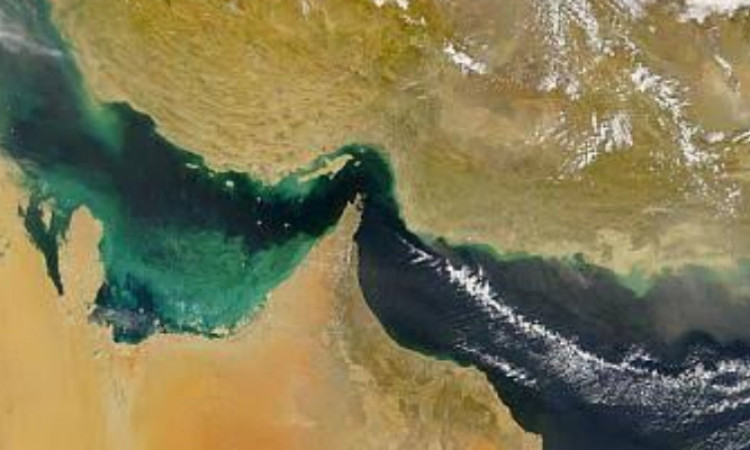
STRATEGIC ASSESSMENT. Iran’s status as a full SCO member will require approximately two more years of legal and technical procedures. Iran has had observer status in the organization since 2005, but its application for full membership was stalled because Iran was under U.N.-authorized economic sanctions after 2010. This roadblock was removed upon Iran’s acceptance of the 2015 multilateral Iran nuclear deal and the related lifting of U.N. sanctions.
The SCO was formed in 2001 by Russia, China, and four Central Asian states (Kazakhstan, Kyrgyzstan, Tajikistan, and Uzbekistan), in part as a response to the radical Islamist Taliban regime then in control in Afghanistan. India and Pakistan attained full membership in 2016. The SCO is an expanded successor to the “Shanghai Five” grouping formed in April 1996 to counter U.S. influence in Eurasia as well as the threat from the Taliban’s advance toward Kabul. The SCO has come full circle with the Taliban’s August 2021 return to power in Kabul – a group of which all SCO members, perhaps except Pakistan, are wary. The Dushanbe SCO summit represented an early diplomatic success for Iran’s Ibrahim Raisi on his first trip outside the country since being sworn in as president in August. Moreover, it gives the organization, which has sometimes been considered “toothless” outside the region, greater opportunities to project influence in a strategic region where the U.S. and its allies will have little or no ground presence.
Aside from joining its members in an alliance, the SCO facilitates closer bilateral relationships among its members, enabling them to pursue mutual strategic interests. On the sidelines of the September SCO summit, Iran and Tajikistan, which had long been at odds over Tehran’s support for an Islamist Tajik opposition group, agreed to expand their trade exponentially. The rapprochement between the two Persian-speaking neighbors of Afghanistan could represent a mutual attempt to acquire leverage over the Taliban, about which both Iran and Tajikistan are particularly concerned. In contrast to their 1996-2001 rule, Taliban fighters control the Afghanistan-Tajikistan border. That border was vital to efforts by Iran, Tajikistan, India and the United States to supply northern Afghanistan’s anti-Taliban minorities, particularly the Tajiks, before and after the September 11 attacks on the United States. In the current context, Iran and Tajikistan might use their SCO alliance to undertake the SCO-prescribed military exercises and intelligence-sharing crucial to any attempt to reopen a supply corridor to the mostly Tajik anti-Taliban forces still militarily active in parts of the Panjshir Valley and elsewhere in Afghanistan.
Whereas Afghanistan was a prominent issue at the Dushanbe meeting, it is Iran’s relations with Russia and China – the two dominant actors within the SCO – that will benefit most from Iran’s full participation in the organization. Over the past several years, Iran has been discussing major conventional arms purchases from both suppliers, and the talks have reportedly accelerated since a United Nations embargo on the sale of major combat systems to Tehran expired in October 2020, as provided for by Security Council Resolution 2231. The expiration of the embargo leaves U.S. unilateral sanctions on Iranian arms buys as the most significant restraint on such sales, aside from Iran’s ability to pay for major new weapons. The security focus of the SCO will provide additional public justification for Russia and China to proceed with new arms sales to Iran, should purchase agreements be reached with Tehran.
The accession to full SCO membership is also certain to advance a core Iranian goal: blunting U.S. efforts to isolate Iran economically and diplomatically. Even though broadening economic relationships is not the core mission of the SCO, all SCO members could cite Iran’s accession as justification for defying U.S. sanctions to expand trade and investment ties to the Islamic Republic. Moreover, the SCO has observer status in the UN General Assembly and works closely with a number of security related entities engaged in the region, including the UN Office of Counter-Terrorism and the UN Counter-Terrorism Executive Directorate (CTED). China has already been defying U.S. sanctions policy by engaging in energy transactions with Iran – it is buying approximately 550,000 barrels per day of Iranian oil, about as much as it was buying in 2011 before U.S. sanctions on Iranian oil sales were enacted. China also has been a major investor in Iranian light industry as part of China’s Belt and Road Initiative that incorporates Iran as a major trade and transportation hub. The Biden administration was reported in September to have asked China to reduce its importation of Iranian oil. However, China’s continued defiance of U.S. sanctions on Iran’s energy sector, as well as any U.S. sanctions that would apply to the 25-year China-Iran economic partnership finalized in June 2020, are more likely now that Iran has been accepted for full SCO membership. Similarly, Russia might use Iran’s SCO accession to justify finally moving to implement a November 2017 memorandum of understanding for broad energy cooperation, valued at about $30 billion. Whether full membership in the SCO fulfills all of Tehran’s goals, it is certain that doing so will strengthen Iran’s resilience against any option the Biden administration might exercise to pressure Tehran to alter its behavior.





